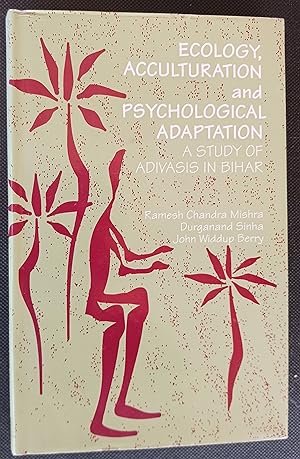This pioneering book applies the techniques of cross-cultural research to a study of Indian society. The authors study in detail the pattern of psychological adaptation of three different tribal groups in the Indian state of Bihar which reflect different ecological adaptations, with resulting differences in settlement and occupation patterns.
A wide range of cognitive behaviours in relation to the ecological engagements of these tribes is examined and a comparative analysis of the lifestyles of the three groups, their patterns of child socialization, and their experiences of and attitudes towards acculturation is offered.
Ramesh C. Mishra (DPhil, University of Allahabad) is Professor Emeritus of psychology at Banaras Hindu University, India. He has been a post Doctoral research fellow and Shastri Research Fellow at Queen’s University, Canada, and a visiting professor at the Universities of Konstanz (Germany) and Geneva (Switzerland). He has also been a Fellow-in-Residence of the Netherlands Institute of Advanced Study, Wassenaar (The Netherlands) and a Fulbright Scholar-in-Residence at Wittenberg University, Springfield (USA). He is the Past President and Fellow of the National Academy of Psychology (India). His research is focused on understanding ecological and cultural influences on human development. He is the co-author of Ecology, Acculturation and Psychological Adaptation: A Study of Adivasis in Bihar (SAGE) and Development of Geocentric Spatial Language and Cognition: An Ecocultural Perspective and co-editor of Psychology in Human and Social Development: Lessons from Diverse Cultures (SAGE).
Durganand Sinha (Born: 23 September 1922; Died: 23 March 1998) did his B.A. and M.A. in Philosophy (with specialization in Psychology) from Patna University. Subsequently, he went to Cambridge University where he was awarded the M.Sc. degree. On his return to India in 1949, Professor Sinha joined as the faculty of Psychology at Patna University. His research article ‘Behavior in a catastrophic situation: A psychological study of reports and rumors’ published in the
British Journal of Psychology showed his scientific creativity and responsiveness to the problems of his immediate surroundings. He left Patna in 1958 and joined the newly established Indian Institute of Technology, Kharagpur.
Professor Sinha came to Allahabad University in 1961 as a professor to chair the newly created Department of Psychology. In the mid-1980s, he also served as the Director of the A.N. Sinha Institute of Social Studies, Patna. The present status of the Department of Psychology at Allahabad as a Centre of Advanced Study owes much to his vision and dedication.
In a career spanning half a century, Professor Sinha made significant contributions as a researcher in diverse areas. It encompassed the role of socio-cultural factors in perception and cognition; changes in the Indian family and the implications for the socialization process; larger applied social psychological issues such as motivation and rural development, deprivation and poverty; and social change. His books (listed in the section ‘Complete Works of Durganand Sinha’ in this volume) have left his name permanently in the field of psychology of social sciences. In India, he was a central figure of the psychological profession. He served as the President of the Indian Psychological Association, the Indian Academy of Applied Psychology and Psychology Section of the Indian Science Congress.


